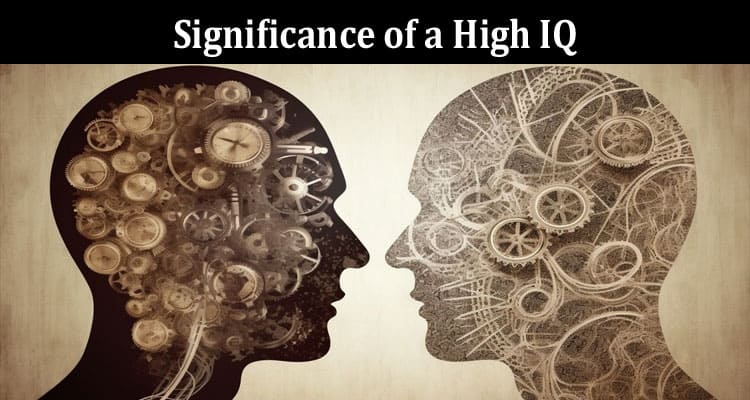Intelligence is a fascinating aspect of human cognition, and measuring it has led to the development of the Intelligence Quotient, or IQ. A high IQ is often associated with various positive outcomes, but understanding its implications requires a nuanced exploration. Let’s delve into the world of high IQ and unravel its meaning.
-
Defining Intelligence Quotient (IQ):
IQ is a numerical representation of an individual’s cognitive abilities, encompassing reasoning, problem-solving, memory, and analytical skills. The concept was introduced by French psychologist Alfred Binet, and the test has evolved over the years to become a standard measure of intelligence.
-
Average IQ in the USA:
The average IQ in the USA is set at 100, with a standard deviation of 15 points. This means that the majority of the population falls within the range of 85 to 115. Understanding the average IQ provides context for interpreting scores and identifying individuals with exceptionally high intelligence.
-
High IQ as a Marker of Intellectual Potential:
A high IQ, often defined as a score above 130, is considered an indicator of exceptional intellectual potential. Individuals with high IQs typically excel in academic settings, demonstrate advanced problem-solving abilities, and grasp complex concepts more quickly.
-
Cognitive Versatility:
One hallmark of high IQ is cognitive versatility. High-IQ individuals often showcase the ability to excel in various domains, adapting to new challenges and acquiring skills rapidly. This adaptability contributes to success in diverse fields, from academia to professional endeavors.
-
Challenges of High IQ:
While a high IQ offers numerous advantages, it can also present unique challenges. High-IQ individuals may face difficulties relating to peers, experiencing heightened sensitivity, and grappling with expectations that come with their intellectual capabilities. Understanding and addressing these challenges is essential for holistic development.
-
Emotional Intelligence and High IQ:
Intelligence extends beyond cognitive abilities, encompassing emotional intelligence (EQ). High-IQ individuals may excel academically but face challenges in navigating social and emotional nuances. Balancing cognitive and emotional intelligence is crucial for overall well-being.
-
The Fluidity of Intelligence:
Intelligence is not static; it can be developed and refined throughout life. Continuous learning, exposure to new experiences, and a commitment to intellectual growth contribute to maintaining and enhancing cognitive abilities.
-
Implications for Education and Career:
High IQ often correlates with academic success, leading to opportunities for advanced education and specialized careers. However, nurturing the talents of high-IQ individuals requires tailored educational approaches that stimulate their intellectual curiosity and creativity.
-
Continuous Development:
Intelligence is not static; it can be nurtured and developed throughout life. High-IQ individuals benefit from engaging in activities that challenge their intellect, fostering a lifelong commitment to learning, and contributing to personal and professional growth.
-
The Multifaceted Nature of Intelligence:
Intelligence is a multifaceted trait encompassing various domains such as logical reasoning, mathematical abilities, spatial reasoning, verbal comprehension, and problem-solving. A high IQ suggests proficiency across these domains, indicating a well-rounded cognitive profile.
-
Advantages of a High IQ:
Individuals with high IQs often demonstrate advanced cognitive abilities, quicker learning, and efficient problem-solving. They may excel academically, demonstrate intellectual curiosity, and adapt more readily to new challenges.
-
The Role of Environment and Genetics:
Both genetic and environmental factors influence IQ. While genetics contribute significantly, environmental factors, such as early childhood experiences and educational opportunities, play a crucial role in shaping intellectual development.
-
Navigating Misconceptions:
Misconceptions about high IQ individuals, such as the stereotype of social awkwardness or isolation, should be challenged. Intelligence manifests in diverse ways, and individuals with high IQs can be found across all walks of life.
Having a high IQ is a multifaceted aspect of an individual’s identity, offering both opportunities and challenges. Recognizing the nuanced nature of intelligence allows us to appreciate the diversity of human capabilities and encourages a holistic approach to education, personal development, and societal contributions. As we delve into the realm of high IQ, it becomes evident that intelligence is a dynamic force with the potential to shape lives and impact the world in myriad ways, as shown in this article.


